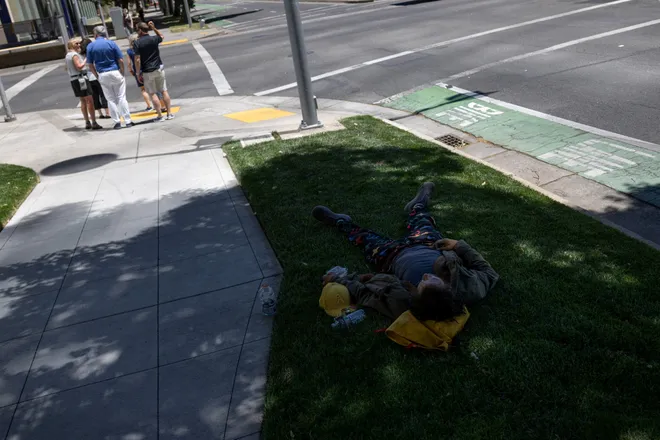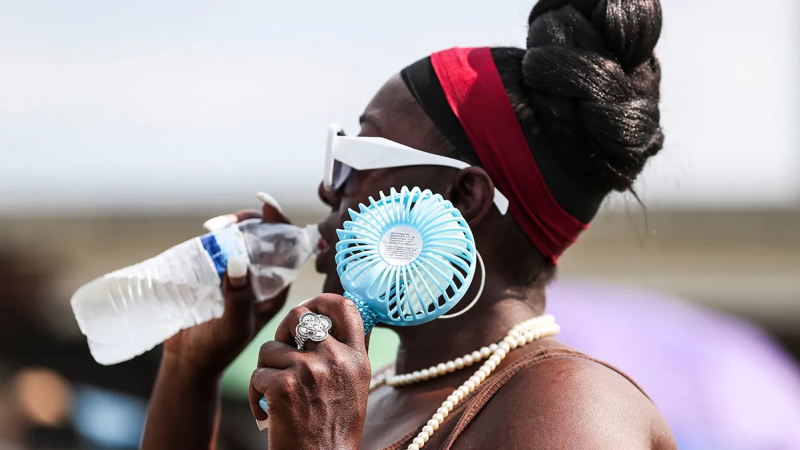California to bake under 'pretty intense' heat wave this week
Oppressive heat in California’s South Central Valley is threatening to dampen Fourth of July celebrations throughout the region as a large area of high pressure strengthens through the week, forecasters say, raising the risk of wildfires and prompting a spike in energy demands.
“Things will heat up in the valleys,” AccuWeather senior meteorologist Scott Homan said. “Records will be challenged.”
An excessive heat watch has been issued for the Sacramento and San Joaquin valleys for July 2 through July 6, he said. On a holiday that many regularly spend outdoors, that means hydration and staying close to cooling sources will be important, he said.
“The heat’s going to be pretty intense for many areas,” Homan said. “You definitely need to take precautions. You don’t want to be outside for too long of a period without some relief.”
Temperatures throughout the region will reach the mid-100s this week, he said. In Fresno, where an “extreme” heat wave is predicted, readings could hit 115 by Saturday, which would tie the record high for that date.

Given the dry conditions, Homan said he expects there will bans or limits on the amount of fireworks that individuals will be able to set off.
“There’s a major concern for wildfires, especially on Independence Day,” he said.
California's heat woes part of broader surge
California’s hot weather issues are part of a summer heat surge impacting seven states in the western United States, AccuWeather said, including Arizona, Utah, Nevada, Oregon, Washington and Idaho. Medford, Oregon, for instance, could see the mercury rise above 100 for the holiday and beyond.
AccuWeather long-range forecaster Paul Pastelok said in an advisory issued by the weather service that the hot and dry conditions mean individuals setting off fireworks should use caution in areas stricken by drought and dried-out vegetation.
“All you need is a trigger mechanism to spark a fire, whether it’s man-made or the wind,” Pastelok said. “We are not expecting a ferocious wildfire season, but we do feel there’s going to be more action in comparison to last year.”

California’s South Central Valley, stretching from Bakersfield to north of Sacramento, will bear the brunt of the heat, Homan said.
The scorching weather will also put a strain on the state’s energy grid as people crank up their air conditioning, while the weather system’s stagnant air will contribute to poorer air quality in susceptible areas.
“The higher the heat, the more pollutants in the air,” Homan said. “That will be a problem as we head into the weekend.”
Temperatures in Death Valley, which holds the distinction of the world’s all-time hottest recorded reading of 134 in 1913, will likely strike just short of that mark.
The good news is that relief can be found along the California coasts, where patchy, low morning clouds will dissipate and give way to sunshine and temperatures in the mid- to upper 70s.
“That should make for a really nice weekend,” Homan said.
Disclaimer: The copyright of this article belongs to the original author. Reposting this article is solely for the purpose of information dissemination and does not constitute any investment advice. If there is any infringement, please contact us immediately. We will make corrections or deletions as necessary. Thank you.



